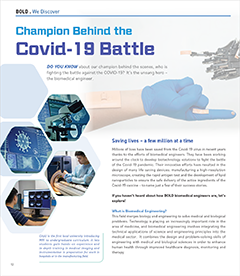Bachelor of Engineering in
Biomedical Engineering (BEngBME)
工學士 (生物醫學工程) *
* This major was retitled from Bioengineering (BEngBIE) 工學士 (生物工程) for students admitted into the major from 2018/19 onwards.
JUPAS code: JS1211 BEng Biomedical Engineering
Biomedical Engineering leads the way in cross-disciplinary research and education at the intersection of engineering and life sciences. Through the fusion of engineering and life sciences, biomedical engineering is expected to address many emerging challenges facing us in engineering, biological science, and human health.
WHY IS BIOMEDICAL ENGINEERING NEEDED?
Healthcare is one of the fastest-developing fields. Air and chemical pollution in modern city, fast spreading of infectious diseases, cancer, aging-related obesity, diabetes, and Alzheimer disease, all impose enormous pressure threating our health and quality of life. However, because of many challenges ahead in this dynamic field, it requires a discipline which can integrate the knowledge of engineering and life sciences at the intersection for medical solutions and innovations.
Hong Kong government clearly identifies medical and testing/certification services being among the six industries which Hong Kong has clear advantages for further development. Considerable amount of job opportunities will be created locally and globally. Aligned with this, Biomedical Engineering will serve to educate the future professionals, ultimately positioning Hong Kong to become a major centre in the following areas:
- New biomedical devices for diseases diagnosis, monitoring, surveillance, and therapeutic treatment
- Food safety and bio-security
- New drug discovery
OBJECTIVES OF THE MAJOR
This major aims to pursue excellence in education, research, and innovation through the fusion of engineering with life sciences for the advancement of human health. Students will be well prepared for the following:
- be able to apply their skills to a variety of challenges in their chosen field.
- be equipped with spirits of innovation, creativity, adaptability, and critical thinking to solve problems in the biomedical engineering related professions.
- to function effectively in multidisciplinary team environments and communicate to a variety of audiences.
- to demonstrate competency in their chosen fields, and make decisions that are socially and ethically responsible.
- to build and expand upon their undergraduate foundations by engaging in learning opportunities throughout their careers.
CAREERS IN BIOMEDICAL ENGINEERING
Upon graduation, you will find career opportunities in healthcare device manufacturing, public health consulting and services, government departments, laboratories and the commercial or educational sectors, or you can pursue postgraduate studies. After completing this major, you will possess expertise that will meet the needs from the increasing public concerns and demands on medical diagnostics and therapeutic treatments, biomedical instruments, food safety and quality, advancement in pharmaceutical and health maintenance products, as well as the awareness for human health and wellness.
ENTRANCE REQUIREMENTS AND ADMISSION ARRANGEMENTS
HKDSE Route
To be eligible for admission, you must satisfy the University’s General Entrance Requirements, with at least one elective subject in Physics, Chemistry or Biology for HKDSE applicants.
JUPAS HKDSE students will apply for admission to the Department of Biomedical Engineering with direct admission to the Bachelor of Engineering in Biomedical Engineering programme (JS1211). During their first year, students will study a broad range of Gateway Education (GE) and College core courses.
Please refer to the Admissions Office’s website for the calculation of the admission score at https://www.cityu.edu.hk/admo/admissions/jupas-admission
Alternative Routes
Direct/non-JUPAS applicants considered for Advanced Standing admission are expected to have, or to be close to having, Associate Degrees or Higher Diplomas with high grades (CGPA ≥3.0 or equivalent) or credit awards in Science- or Engineering-related disciplines. Preference will be given to applicants with Physics and Mathematics background.
Qualified applicants may be invited for interviews and considered for admission based on their performance in the following areas:
- Academic performance
- Leadership experience and potential
- Extra-curricular activities
- Community/school services
- Communication skills
- Recommendation
CURRICULUM
The curriculum has been categorized into four main areas:
Technical Foundation courses
Artificial Intelligence in Biomedical Engineering, Engineering Mathematics, Electronic Circuits, Thermo and Fluid Dynamics, Biomechanics, Biomaterials, Electromagnetics, Engineering Graphics, Engineering Computing
Medical Devices and Systems
Medical Biotechnology in Imaging and Measurement, Biomedical Signals and Systems, Micro and Nanotechnology, Computational Biology and Bioinformatics, Biomedical Instrumentation, Bio-sensors and Bio-devices, Biomedical Systems and Control, Consumer Mechatronics, Robotics and Machine Vision
Cell and Molecular Engineering
Molecules and Cells, Cell Transport and Signalling, Tissue Engineering, Regenerative Medicine, Gene Therapy
Health and Wellness Technology
Human Quantitative Physiology, Health Maintenance and Wellness Technology, Bio-safety and Security, Technology for Drug Discovery, Radiotherapy Physics
Integrated courses
Final Year Project, Professional Engineering Practice
The major requires a total of 120 credit units. Applicants with Associate Degree, Higher Diploma or equivalent qualifications may be admitted with Advanced Standing I or II.
PROFESSIONAL RECOGNITION
This major has been granted accreditation by the Hong Kong Institution of Engineers (HKIE), a signatory member of the Washington Accord under which all members agree to recognise each other’s accredited Engineering degree programmes.
TUITION FEES
Government Funded Programmes
Latest information on tuition fees is available at the website of the Finance Office.
| Phone: | +852 3442-8406 (Ms. LEE) |
|---|
MAJOR LEADER
| Coordinator: | Prof. CHEN, T.H. |
|---|---|
| Email: | thchen@cityu.edu.hk |
INTERVIEW ARTICLES AND VIDEOS
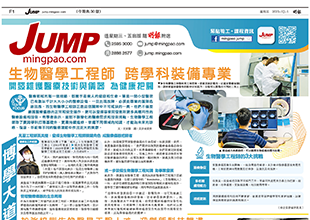
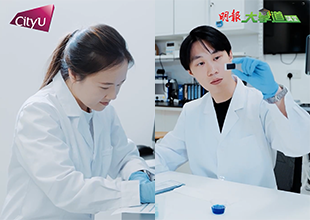
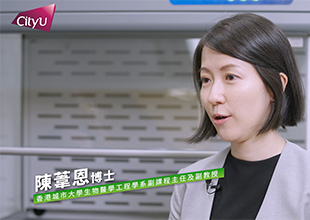
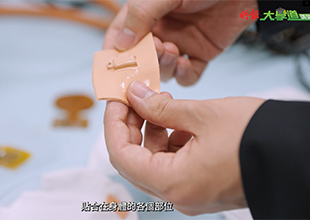
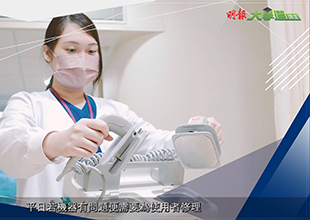
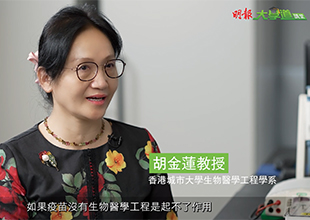
![星島網 [大專生故事]](img/thumb/thumb-20072021-singtao.jpg)
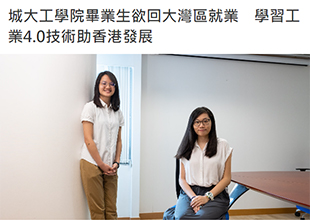
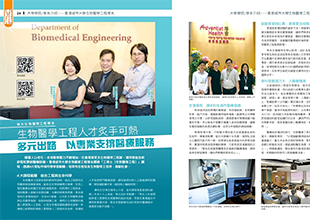

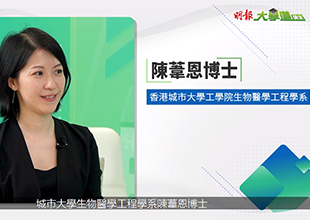
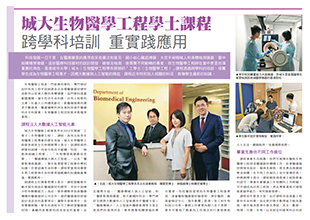
Major Structure/Major Requirement (Links to University Undergraduate Catalogue)
Overview
Normative 4-year Degree
Advanced Standing I (ASI)
MODEL STUDY PATH (PDF)
BENGEGU4 BME 2022/2023 Cohort
BENGEGU3 BME 2023/2024 Cohort
BENGEGU4 BME 2021/2022 Cohort - [Revised]
BENGEGU3 BME 2022/2023 Cohort
BENGEGU4 BME 2020/2021 Cohort - [Revised]
BENGEGU3 BME 2021/2022 Cohort - [Revised]
BENGEGU4 BME 2019/2020 Cohort - [Revised]
BENGEGU3 BME 2020/2021 Cohort (ASI)
BENGEGU4 BME 2018/2019 Cohort - [Revised]
BENGEGU3 BME 2019/2020 Cohort (ASI) - [Revised]
BENGEGU4 BME 2017/2018 Cohort - [Revised]
BENGEGU3 BME 2018/2019 Cohort (ASI) - [Revised]
STUDENT HANDBOOK (PDF)
2023/24 · 2022/23 · 2021/22 · 2020/21 · 2019/20
Last modified on 20 March, 2024
